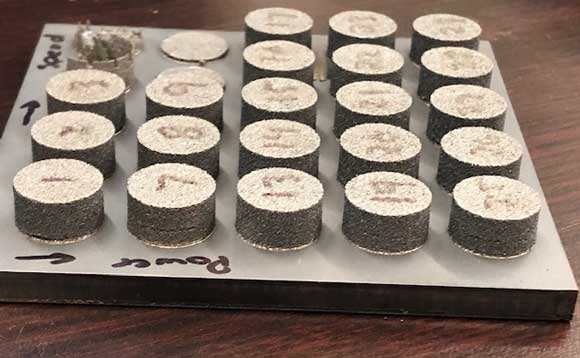A joint research project between Canadian-based Mohawk College and the University of Guelph is underway to develop a ductile iron powder to enable CGL Manufacturing Inc., a supplier of machined castings, components, and fabrications headquartered in Guelph, Ontario, Canada, additively manufacture high-quality rapid prototypes for its customers.

CGL is seeking a competitive advantage by enabling a faster response to customer’s requests for new and redesigned parts, and has selected the combined Additive Manufacturing and materials development expertise at Mohawk College and the University of Guelph.
“A 24-week lead and set-up time of the casting process is one of the main challenges CGL faces when a sample part is needed for a new client, or for design revisions of current products,” stated Michael Ritchie, president and CEO of CGL Manufacturing Inc. “We want to provide our clients with a high-quality experience, and part of that is reducing production to market time for samples, new products, and design revisions.”
The company produces its final parts in 65-45-12 ductile iron, a material known for its strength and durability. While the company plans to continue to use castings to create final parts from this metal, it has identified Powder Bed Fusion AM as a method for producing preliminary parts and prototypes. However, ductile iron is not a material that is commonly used in Additive Manufacturing, and is not commercially available.
The joint research project will aim to ensure that the AM parts will have the same chemical composition and mechanical properties as the final casted parts.
“This project is an example of a synergetic collaboration and resource integration between industry and academia to develop novel solutions to unique business challenges,” Ibrahim Deiab, Professor of Mechanical Engineering at the University of Guelph, commented. “On the Guelph side, the Advanced Manufacturing Lab provides a unique environment to support this type of research, training and education in advanced and sustainable manufacturing technologies.”
Jeffrey McIsaac, Dean of Applied Research at Mohawk College, noted, “It’s important for the Canadian private sector to compete in a global marketplace. By leveraging academic institutions to help solve key challenges, small and medium-sized companies grow faster and smarter. Mohawk’s Additive Manufacturing expertise will help CGL explore new 3D printing at low risk, and will keep them at the forefront of technology.”
The two-year project has received $300,000 of funding from the Natural Science and Engineering Research Council of Canada (NSERC) to support the research through an Innovation Links programme. CGL is also investing $200,000 in the project.
CGL will work on this research with Jeff McIsaac, Simon Coulson, and Justin Valenti at Mohawk College’s Additive Manufacturing Innovation Centre (AMIC) and Dr Ibrahim Deiab and John Cloutier of the University of Guelph’s Advanced Manufacturing Laboratory (AML).
“Our diverse range of capabilities allows us to take on the projects that other firms cannot while providing a level of service unparalleled in our industry. This collaboration with Mohawk and Guelph will provide our clients with an additional reason to rely on Canadian innovation,” Ritchie concluded.


